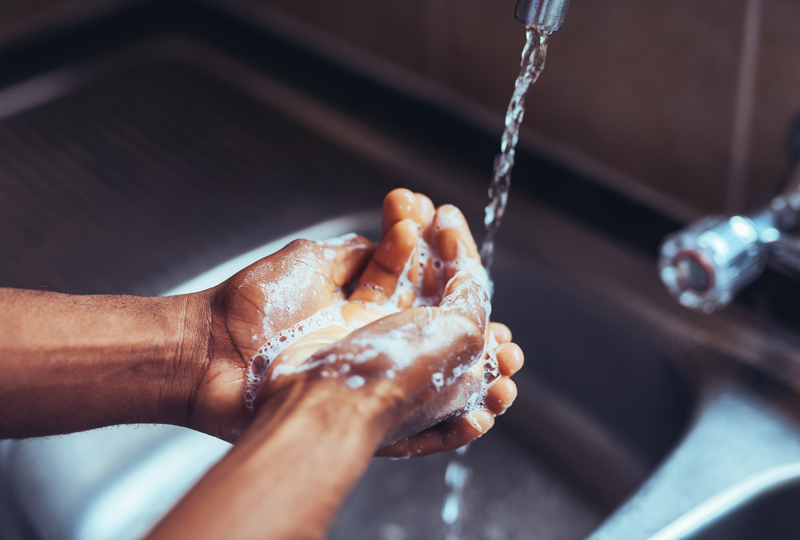Worried about the spread of coronavirus? Here’s how to keep you and yours safe.
To really learn how to avoid infection of the coronavirus, aka COVID-19, it’s important to understand how the virus spreads.
Though researchers are still learning about COVID-19, the CDC believes that it is passed from person-to-person through the respiratory droplets produced during coughs and sneezes. (Essentially, if an infected person coughs or sneezes within about 6 feet of you, these droplets can land in your mouth or nose, or be inhaled into your lungs.) It’s also possible that it may be transmitted through touch — you touch an infected object, and then touch your eyes, nose or mouth — although this is not believed to be the main way the virus spreads.
Armed with this knowledge, there are proactive coronavirus prevention measures we all can take to keep ourselves and our loved ones safe. Here are the CDC-recommended hygiene practices we should follow to avoid COVID-19 infection.
Wash your hands — correctly.
That quick sudsing after a trip to the bathroom or before a meal is not enough for coronavirus prevention. Especially in public places where you could encounter contaminated surfaces, wash your hands with soap and water for a full 20 seconds or more, being sure to lather the back of your hands, your wrists, between your fingers and around your nails. If soap and water aren’t available, be sure to use a hand sanitizer that is at least 60% alcohol. Rub the gel over your hands as described above until your hands are dry — again, for about 20 seconds.
Avoid touching your eyes, nose and mouth.
We all touch our faces. A lot. Likely without even realizing it. But since microbes can land on your hands and then enter your body through your eyes, nose and mouth, it’s important to avoid touching your face with unwashed hands. Remember: Just touching a contaminated surface isn’t the issue. The issue is touching that surface, and then touching your eyes, nose or mouth.
Disinfect hard surfaces.
Keep commonly touched surfaces clean and disinfected — be sure to follow your cleaner’s label instructions, as they often require the disinfectant to sit for a period of time before being wiped away. If you’re concerned that your usual household cleaner might not be enough, refer to this list of EPA-approved products that can be used to fight COVID-19 pathogens.
When out in public — for example, when using public transportation or opening door handles — use a disposable wipe to disinfect.
Cover your mouth and nose with a tissue when coughing or sneezing.
This is key, as person-to-person respiratory contamination is believed to be the leading cause of coronavirus transmission. Using a tissue will help prevent the droplets from dispersing into the air. (Be sure to immediately throw away the tissue after use!) Also be sure to keep yourself at a safe distance — about 6 feet — from others while coughing or sneezing.

Tennesseans who have questions about COVID-19 should call the Coronavirus Public Information Line at (877) 857-2945. This line is available daily from 10 a.m.–10 p.m. (Central Time Zone). Note: Call volume may be high, so callers are urged to call again if getting a busy signal. For information for employees and patients of Vanderbilt University Medical Center, visit: https://vumc.org/coronavirus

